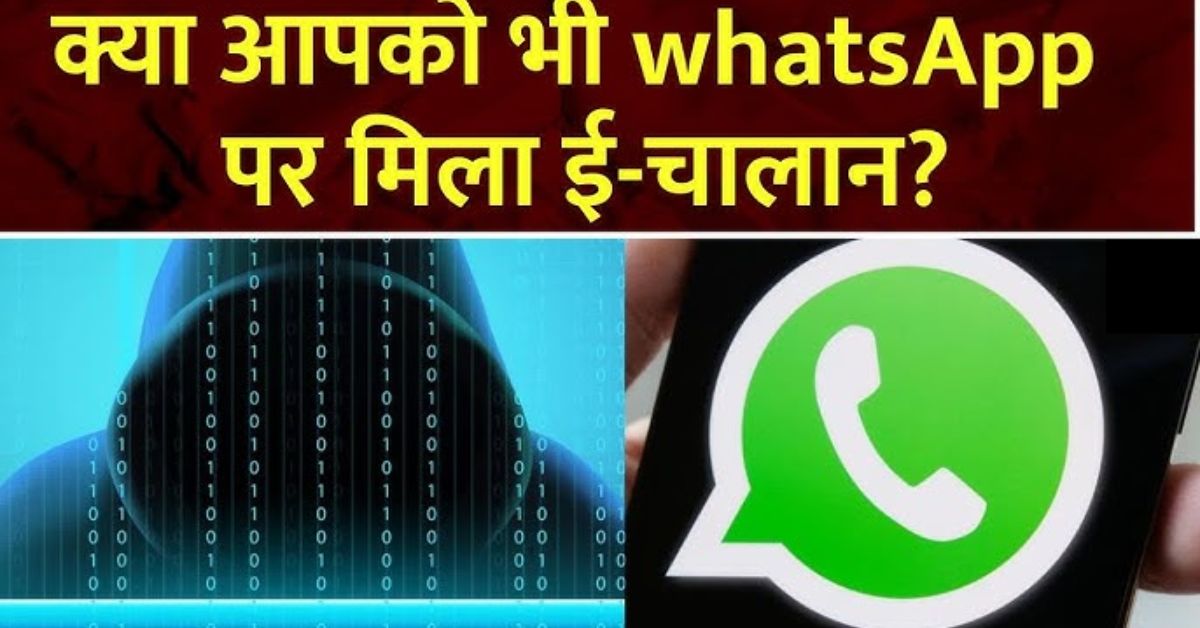In the ever-evolving landscape of cybercrime, scammers are now exploiting one of the most mundane aspects of urban life—traffic violations. A new wave of fraud is sweeping across India, where unsuspecting citizens are receiving fake traffic challan messages via WhatsApp. These messages, often disguised as official notices from the RTO or traffic police, are part of a sophisticated scam designed to steal sensitive personal and financial information. If you’ve received such a message recently, you’re not alone—and you need to be alert.
🚨 The Anatomy of the Scam
The scam typically begins with a WhatsApp message from an unknown number. The sender may use a profile picture featuring government logos or names like “RTO India” or “Traffic Department” to appear legitimate. The message claims you’ve violated traffic rules—speeding, signal jumping, or improper parking—and includes a link or an APK file to “view” or “pay” the challan.
Here’s how the scam unfolds:
- Fake APK Files: The message may contain a file named something like
RTO_Challan.apkormParivahan.apk. Once installed, this app mimics official government platforms but secretly requests dangerous permissions to access your SMS, contacts, and banking apps. - Phishing Links: Some messages include links to websites that look identical to the official Parivahan portal. These sites prompt users to enter personal details, bank credentials, or OTPs, which are then harvested by scammers.
- Urgency and Threats: To pressure victims, the messages often warn of legal consequences or vehicle seizure if the challan isn’t paid immediately. This sense of urgency is a classic tactic used in phishing attacks.
🧠 Why It Works
This scam is particularly effective because it preys on fear and confusion. Most people aren’t sure how traffic challans are issued or tracked, and the idea of a pending fine triggers panic. Combine that with the official-looking format and the convenience of WhatsApp, and it’s easy to see why many fall for it.
Moreover, APK files are especially dangerous for Android users. Unlike apps downloaded from the Play Store, these files bypass security checks and can install malware that steals data, intercepts OTPs, and even hijacks your WhatsApp account.
📉 Real-Life Incidents
The consequences of falling for this scam can be severe. In Vadodara, a businessman reportedly lost ₹34.75 lakh after installing a malicious app sent via WhatsApp. The app compromised his banking details and enabled unauthorized transactions.
Similar cases have emerged from Bengaluru and Hyderabad, prompting police departments to issue public advisories. Victims have reported losing tens of thousands of rupees, and in some cases, their devices were completely compromised.
🛡️ How to Protect Yourself
Here are some essential tips to stay safe from fake traffic challan scams:
- Never Download APKs from Messaging Apps: Government bodies do not send app files via WhatsApp or SMS. If you receive one, delete it immediately.
- Verify Challans on Official Portals: Use the Parivahan e-Challan portal or your state’s traffic police website to check for genuine challans.
- Disable “Install from Unknown Sources”: This setting prevents unauthorized apps from being installed on your device.
- Avoid Clicking on Suspicious Links: Even if the message looks official, do not click on links unless you’re sure of the source.
- Report the Number: If you receive a scam message, report the number to WhatsApp and your local cybercrime cell.
🧾 How to Check Real Challans
To verify if you actually have a traffic challan:
- Visit the Parivahan e-Challan portal
- Enter your vehicle number or driving license number
- View any pending challans and pay securely through the official site
This simple step can save you from falling into the trap of fake messages.
🧠 Final Thoughts
The rise of fake traffic challan messages on WhatsApp is a stark reminder that cybercriminals are constantly adapting. What makes this scam particularly dangerous is its blend of psychological manipulation and technical deception. It’s not just about stealing money—it’s about eroding trust in digital systems.
As citizens, staying informed is our first line of defense. Share this information with friends and family, especially those who may be less tech-savvy. The more people know about this scam, the harder it becomes for fraudsters to succeed.
